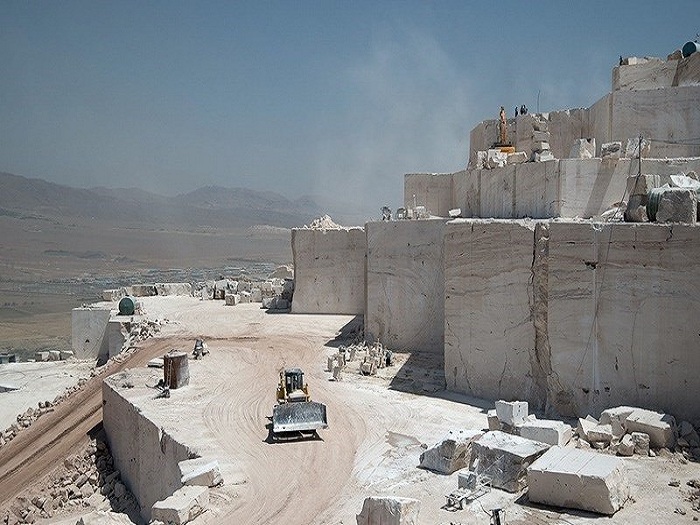Reduce mining output by one third

Mohsen Barghi: Domestic producers process stone in old ways. As we always have rich mines in the country, we have not thought of new ways of production.
According to the International Stone Exhibition of Iran, the local miner Mohsen Barghi announced the decline in the production of the mines in Mahalat and said: "We have production now but our production is one-third earlier." There is no rock customer and the market situation is in disarray. It's been a year and a half since the miners caught up and the situation is getting worse every day.
He noted the decline in exports and foreign customers in the stone industry, saying: "They have raised customs tariffs and dropped about seventy percent for customs tariffs and of course lowered tariffs later, but buyers did not return to our markets and instead buy from Turks." They did.
"At present, only small quantities of precious stones, such as Dehabid and Travertine, are purchased by Chinese customers, and on the contrary, we cut the stone by two centimeters in diameter, and cut the stone to four millimeters in thickness and attach it to the metal," he said. Ceramics sell to some projects inside Iran, such as in Mashhad for a Chinese-made five-star hotel.
Mohsen Barghi considered the old methods of production as one of the factors for the decline in exports and said: "Domestic producers process the old methods of stone." As we have always had rich mines in the country, we have not thought of new methods of production, but other countries make the most use of the stone.
He said: "Our manufacturers do not have up-to-date technology and machinery, and importing them from countries such as Italy, which are the best in the world, is not profitable for Iranian stone-throwers." The stonemason should spend somewhere he can harvest.
On the other hand, our workforce is not the workforce of other countries. A Chinese worker has eight and a half hours of productive work, but in our country only eight hours of productive work.
He added: "When you look at Chinese stone mills, you find that they produce higher quality stone at a lower price, which in our opinion is not economical." On the other hand, they are both expensive, their electricity is expensive, both their salaries are higher and they pay more taxes. They compensate for this by producing more and workers work full time.
Mohseni Electric described the problems of the stone industry as grave and said: "At present, the rockers are under pressure for the added value of nine per cent, and on the other hand they have also taxed the machinery so they went on strike.
"Miners can't go on strike right now because mine work is seasonal and machinery and mine are usually leased. We have to pay what we do or don't do and if the mine doesn't work, the government will take it from us," he said.
* City










